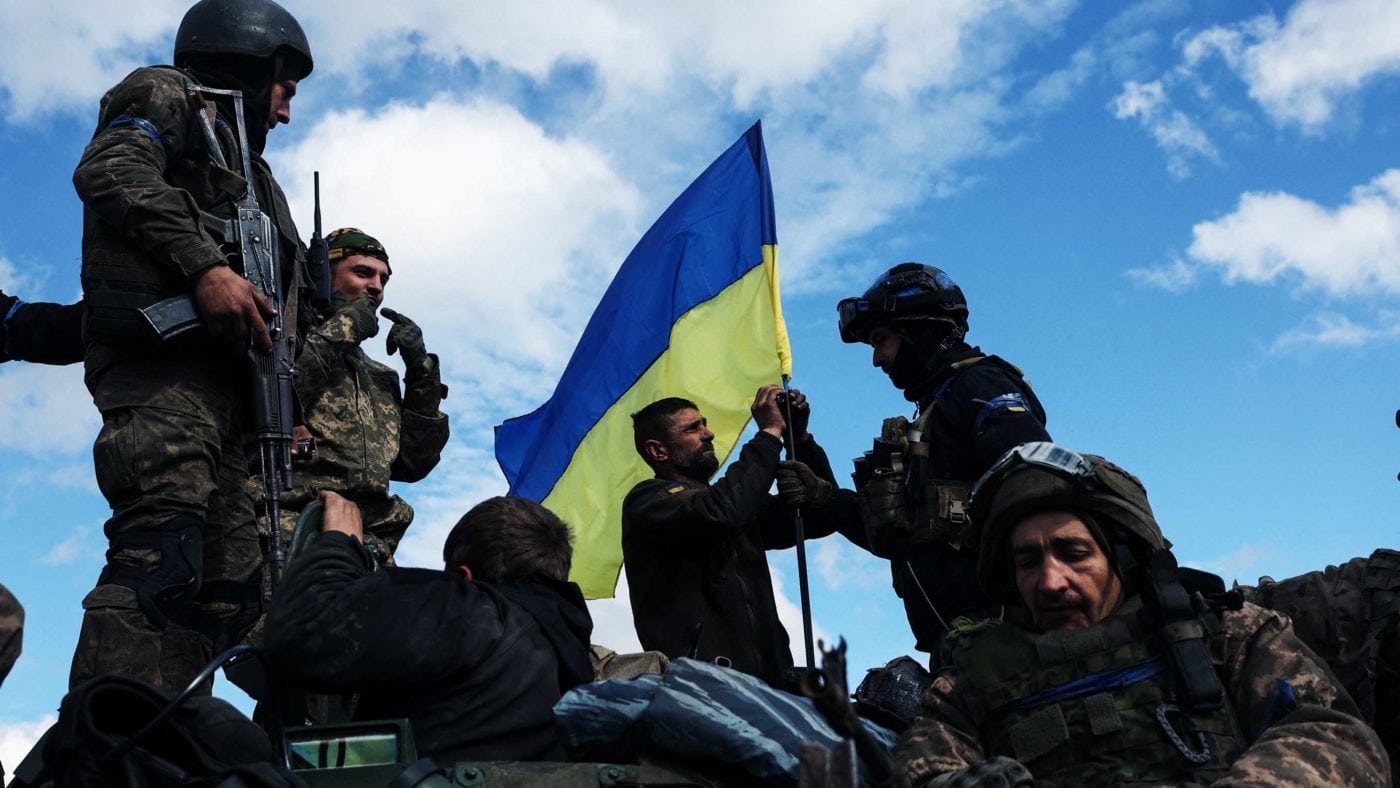It doesn’t take living in the UK long for one to get used to the reality that the news cycle in Britain churns with brutal rapidity. For much of the last six months, that speediness has sometimes distracted me from the war back home, with only daily messages from my brother bring me back to reality.
He has been based in the north-east of Ukraine as part of a special forces unit since May and has been part of the liberation of the Kharkiv region, including the strategic towns of Izyum and, more recently, Lyman.
The stories from Izyum are surreal. Many local residents were shocked to see the Ukrainian servicemen, they had no idea that Kyiv was still standing, they didn’t know that the whole world was behind Ukraine, they have never heard of the terrors of Bucha or Borodyanka.
They had plenty of their own horrors to recount, however – horrors the world would find out about when gruesome mass graves were discovered in the nearby forest. As for Lyman, my brother cannot even bear to tell the stories.
This morning’s cowardly attacks on Kyiv and other Ukrainian cities are a stark reminder of what Vladimir Putin’s regime is all about. Firing rockets at parks and residential areas has nothing to do with prosecuting a military operation, or targeting strategically important assets: it is terrorism, pure and simple, designed to cow and subdue a population that wants nothing to do with his demented vision of a ‘greater Russia’.
It’s also, of course, the response of a tyrant who knows he is on the back foot after the explosion on the Kerch bridge – an act of huge symbolic and strategic significance, not only in its immediate execution, but for what it implies about Russia’s hold over the territories it claims to have ‘annexed’ from Ukraine.
It was also a welcome fillip for a Ukrainian population that has become inured to horror, grief and loss. While my own brother has finally got the chance to return home after five months on the front line, thousands of other families will never see their loved ones.
Since Putin’s mass mobilisation of (often reluctant) reservists, the mood in Ukraine has changed to one of focus and preparation. Few expect these new soldiers to be anywhere near ready to fight, particularly given the manifest incompetence of the Russian war effort so far. Nevertheless, the fact that tens of thousands more troops may soon enter the fray, and reports of tank columns arriving in the Donbas from Belarus all reinforce the need for our own forces to be alert.
And the latest mobilisation is unlikely to be it. Some sources suggest the Kremlin wants to call up another 1.2 million recruits by spring for a final assault on Ukraine.
Of course, that action isn’t going unanswered. Ukraine’s leadership is mobilising its own resources and rallying round allies for extra support. Witness the $650m in extra military aid announced by the US Defence Secretary earlier this week, and this week’s US-led Ramstein Summit in Germany, at which decisions on allocating more weapons to Ukraine will be made.
Thankfully, no one has the slightest illusions now about what the Putin regime is. From nuclear threats to the recent attacks on Nordstream pipelines, the West has seen enough to finally stop indulging the Kremlin and see through its bully-boy tactics. Particularly welcome was the directness of warnings from the Biden administration about its response to a nuclear strike – the annihilation of Russian forces on Ukrainian territory and the sinking of the Black Sea Fleet.
As the courageous Ukrainian army continues to liberate one town after another, playing an intricate game of chess with an increasingly inebriated, languorous bear, the West’s best chance of preventing escalation is to make sure Ukraine wins, with whatever military, financial and intelligence support it needs. Given Putin’s attempts to reinforce his shattered forces, time really is of the essence. Advances before the winter really will determine the outcome of the war.
A message my brother sent today crisply distils our collective mentality at the moment. Asked if there was anything he needed for the winter months, he replied simply: ‘All good. Don’t trouble yourself. Thank you, to all of you, for everything. To you, your friends and the whole civilised world. We got this.’
Click here to subscribe to our daily briefing – the best pieces from CapX and across the web.
CapX depends on the generosity of its readers. If you value what we do, please consider making a donation.


